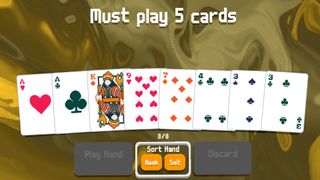After an unbeatable year for Balatro, we asked a professional poker player to break down what makes the indie roguelike so good
Year in Review | How did an indie poker remix take over 2024?
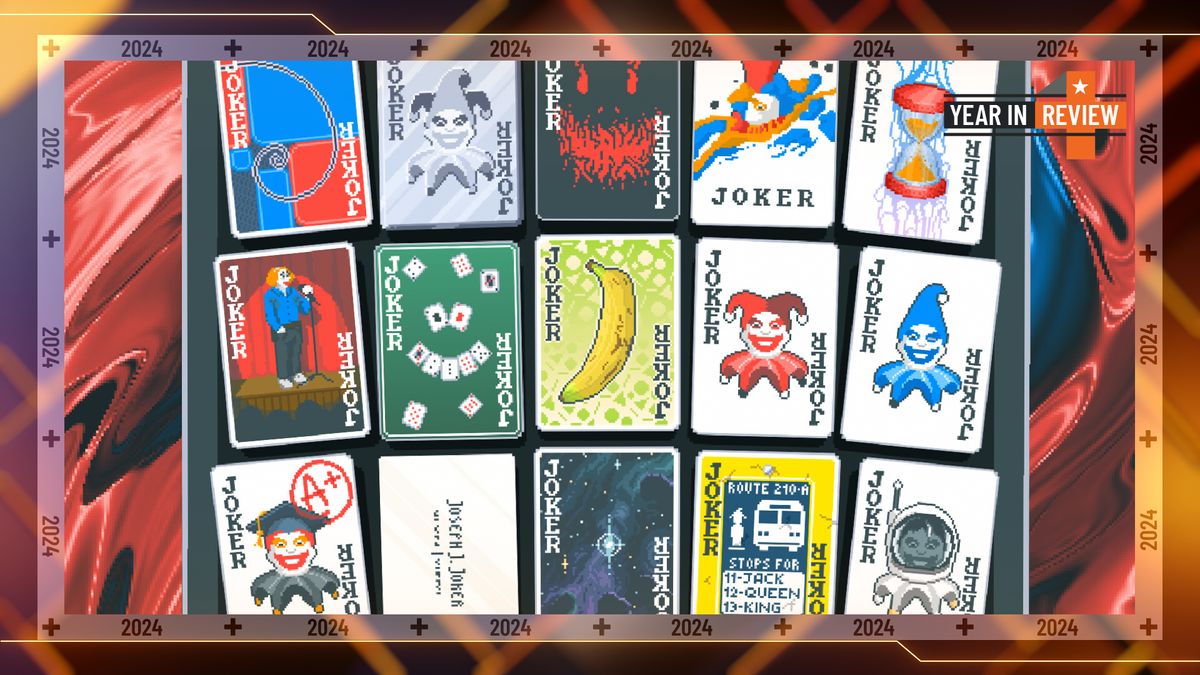
Distraction, thy name is Balatro. This surprise indie hit of 2024 has seen millions fall into the gaping mouth of its distorted, unhinged poker simulator, which is now one of our best games of 2024 and has claimed over 11 thousand years of playtime from our lives.
Much has been said about Balatro's humble origins, as a side project for solo dev LocalThunk, with an expectation of single-digit sales and a few, semi-entertained family members. Now, with critical acclaim, huge sales, various cross-game tie-ins, a Critics' Choice Breakthrough Award, and a multi-platform royal flush, Balatro is undoubtedly one of the biggest success stories of 2024.
How did this happen? Developer LocalThunk, who we interviewed at launch, is as bewildered as anyone else, having worked on various solo projects for himself and a close circle of friends. After making a game he quite liked – Balatro – he figured it was best to publish it in some form in case it helped his CV, which it certainly did. With a bewitching core loop, a punchy art style, and a sense of mischief to its 150 joker cards, millions of players around the world were hooked even before it came to mobile and truly ruined our lunch breaks forever.
Balatro is just the latest in a string of the best roguelite games – or deckbuilders – combining luck, strategy and randomised elements with persistent progression systems. Even if you lose, or die, you'll carry some benefit over to the next 'run', allowing you to slowly accrue experience and new items/abilities to try out each time.
It's a growing genre largely kicked off by 2017's Slay The Spire, which has seen countless imitators, from Wildfrost and Monster Train to Cobalt Core and Roguebound. More than any of them, Balatro feels like a real step out of Slay The Spire's shadow: one of the most interesting things about Balatro is that its dev hadn't played any of these roguelite deckbuilders before making his own, ensuring his own twist on the genre felt sufficiently fresh.
However, it's obviously still heavily indebted to another card game – poker.
Poker faces
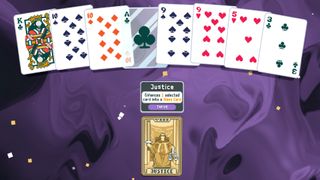
To get a sense of how Balatro riffs on its source material, we sat down with professional poker player and comedian Ken Cheng, star of the BBC Radio 4 show, Chinese Comedian, and the host of Game Over, Humans, a documentary about AI and gaming.
Sign up to the 12DOVE Newsletter
Weekly digests, tales from the communities you love, and more
Cheng dropped out of university at the age of 19 to pursue a poker career, and has a strong affection for the “strategy, risk and people reading” baked into the classic card game – as well as its latest iteration in Balatro.
“Poker is a beautiful game”, says Cheng. “It was played centuries ago. And it's a very well-designed game for a game that hasn't been designed by anyone [in particular], and it's still very interesting now. It's a very deep strategic game, but can still be played with a deck of cards. And that is the simplicity of Balatro, that you're just dealing with a deck of cards.”
Balatro starts you off with a classic 52-card deck, with a number of joker cards that change the way that your high score is calculated each round, alongside other augmentations, removals, multipliers, and a secondary system of tarot cards. (We're not in Vegas anymore, Toto.)
It's a curious remix that breaks many of poker's rules, while also feeling like an accessible way into the deckbuilder genre. “Even if you don't know the rules of poker, you've probably heard of a Royal Flush, or a Full House, or watched a movie like Casino Royale, where there's a poker scene,” says Cheng. “It's there in our culture, and it's so recognizable. I think what Balatro does very well is to put all that together in what is a really nice art style. It's very simple to read.”
But Cheng also argues that part of Balatro's success is its willingness to be different, not sticking too close to poker's standard rulesets: “I think it's great that some people have tried to make poker-based video games; they failed because they've tried to make it too similar to poker, whereas Balatro went outside the box. So it's very different to poker, but it's clever in that it maintains what people know about poker, like the basic hands and cards.”
Rolling the dice

"Poker right now is very boring, because optimal play is very boring"
Ken Cheng
LocalThunk has made it very clear that this gambling simulator should never incorporate real-life gambling into it. In a post on X, the dev wrote that “when I recently created my will I stipulated that the Balatro IP may never be sold or licensed to any gambling company/casino,” ruling out the possibility of seeing Balatro mascot Jimbo on a Las Vegas slot machine anytime soon.
But one of the biggest insights I get from Cheng is how Balatro recaptures something of the thrill they felt when first entering the poker scene.
“Poker right now is very boring, because optimal play is very boring,” says Cheng. “It's just folding a lot of the time. When I first got into poker, it was so exciting and so riveting, like the hands you make, the situation players get. And I think Balatro has that same kind of magic to it, that hasn't really been felt with real poker for a long time.”
Games are at their best when it feels like something new is being invented before your eyes, much like each run in a roguelite deckbuilder, remixing the game over and over in order to make it feel fresh each time. And in a games landscape full of safe, iterative AAA games, it's thrilling to see a solo dev stumble onto one of the year's biggest hits – by rolling the dice on something new.

Henry St Leger is a freelance technology and entertainment reporter with bylines for The Times, GamesRadar, IGN, Edge, and Nintendo Life. He's a former staffer at our sister site TechRadar, where he worked as the News & Features Editor, and he writes regularly about streaming, games, D&D, and a host of home technologies including smart speakers and TVs. He lives in London with his Nintendo Switch (OLED) and spouse (not OLED).
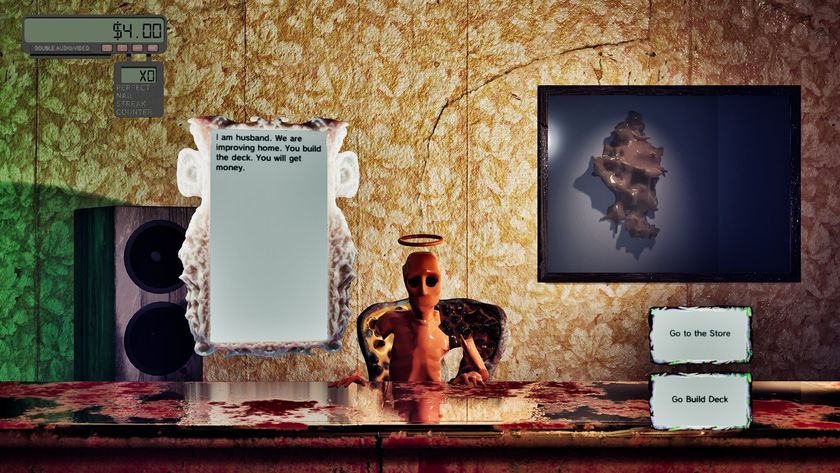
With 97% positive reviews on Steam, Rogue Light Deck Builder is a hilarious $3 parody game that takes its name very literally
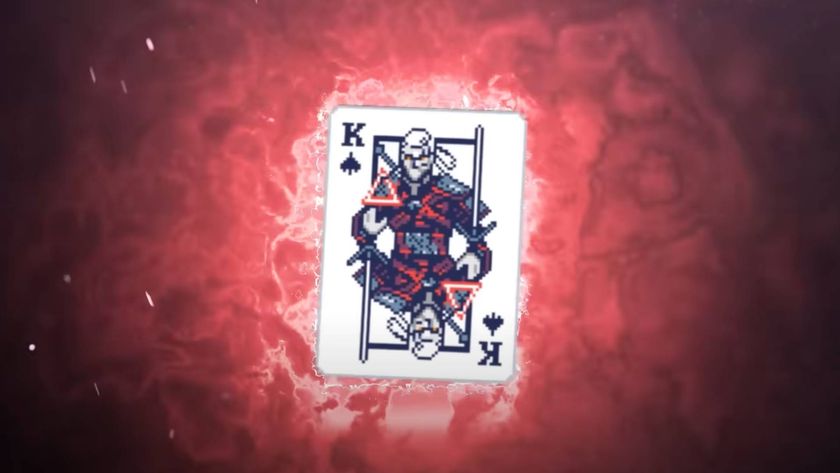
Baldur's Gate 3 director Swen Vincke says indie poker roguelike Balatro was his 2024 GOTY, beating out Final Fantasy 7 Rebirth, Astro Bot, and Elden Ring: Shadow of the Erdtree
